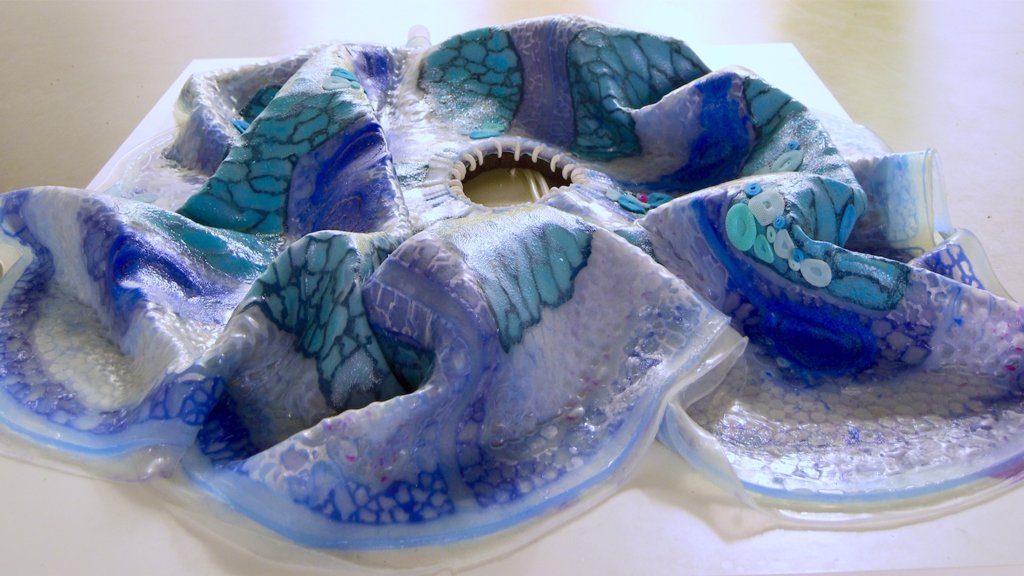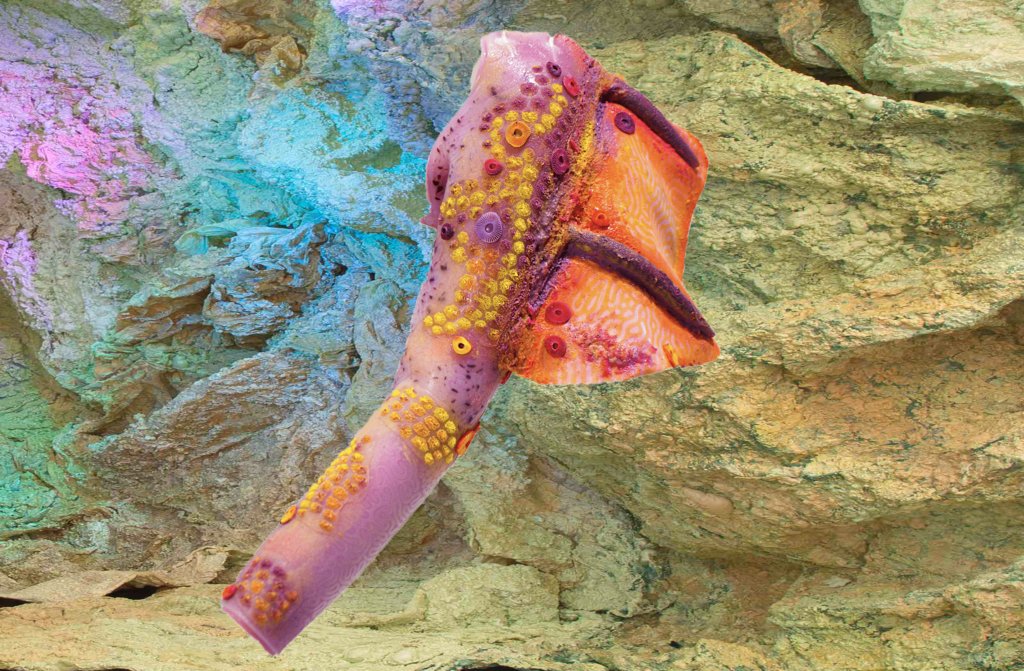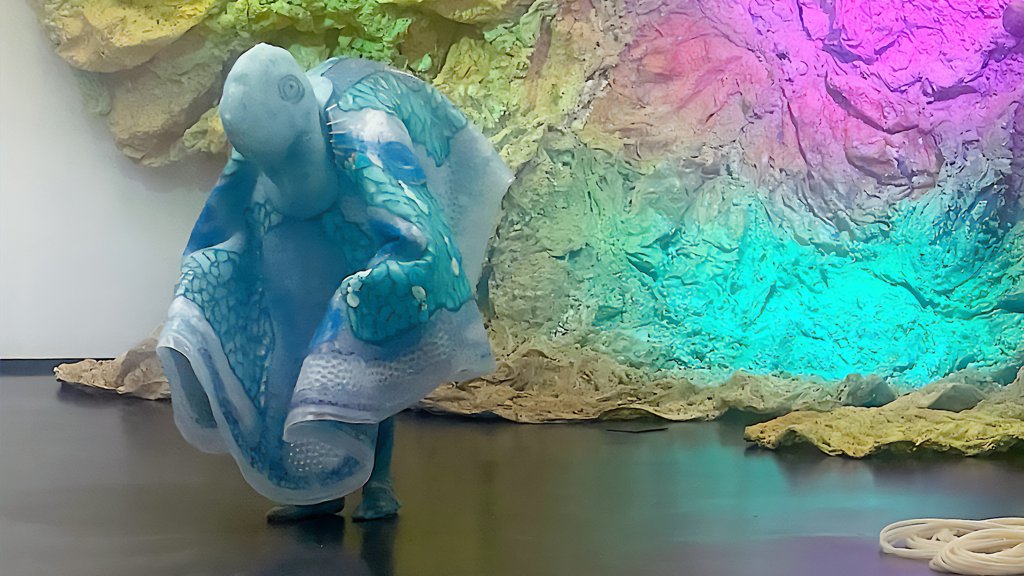Mette Sterre
Mette Sterre develops "body masks" that can be understood as (parts) of costumes that extend the human body into its natural, social and technological environment. The Octopus Suit is the result of research into the capabilities of an Octopus (skin) and mimicking this through soft robotics engineering to explore the qualities of it for human applications. This research into biomimicry of octopus skin fits into Mette Sterre's artistic practice, as it allows to make a chimera hybrid being, that underlines the dissolvement of the mind body duality, and creates a cyborg being, that can think through touch and tactility, optimising intuitive movement as a reactionary environment.
How to develop an appearance-changing body mask that mimics the metamorphous skin of an octopus?
Together with TU Delft in its Crossing Parallels artist in residency program, artist Mette Sterre developed The Octopus Suit as a result of research into the transformative capabilities of an Octopus (skin), creating a hybrid being, that dissolves the boundaries between mind body, human and non-human.
The skin is used for camouflaging as a defense mechanism, but also as a way to communicate with other species as a way to hunt, seduce and protect. One could argue that the skin of an octopus is the equivalent of a digital skin costume for humans. This project is not about trying to exactly copy the actual microscopic mechanisms of an octopus skin. Rather, it is about the effectiveness of the visual communication and camouflage of the body mask. Therefore, solutions will be judged based on their visual effect and the emotional response from the viewer.
Appearance change is possible in many ways, but having the octopus as a reference, we subdivided it into a couple of different segments: colour change by using liquid flow, shape change using air flow (‘little balloons’, inflatables), shape change using air flow based on soft robotic principles, the application of texture, the integration of all these techniques into one coherent design, and lastly, embodiment of this design in a poncho-like body mask. When the octopus wants to change its texture, it can relax or tense its papillae. Papillae are similar to really tiny tongues. To translate this to the body mask, experiments were done with both hand-applied and computer-designed techniques. Three bio-inspired textures were created. The computer-designed textures are produced by using specific settings to laser cut an acrylic sheet onto which silicone is poured. A gradient depth is created by using unfocused vector laser cutting, path layering and colour mapping.
Research has been done about specifics on the octopus and its bio-mechanism for form and colour change. This project is particularly important because, while other research has been done on the tentacles and suckers of the octopus, very few research groups have focused on the transformability of the skin itself.
Little has been done to combine mechanisms of form and colour change, and thereby mimic the complexity of the skin. The creation of octopus skin in soft robotics is highly innovative, because it involves mimicking the unique properties of the skin of an octopus; highly transformable, adaptable, and able to change its colour and texture for camouflage and communication. This is an important step towards developing soft robots that can interact with the environment in a more natural and versatile way. Moreover, very little research has been done in applying form-changing mechanisms in a skin-like wearable. This can be further expanded by considering the ways in which the appearance change is controlled. Determining how the suit responds to the performer or wearer, raises a multitude of relevant questions of identity fluidity and expression.



